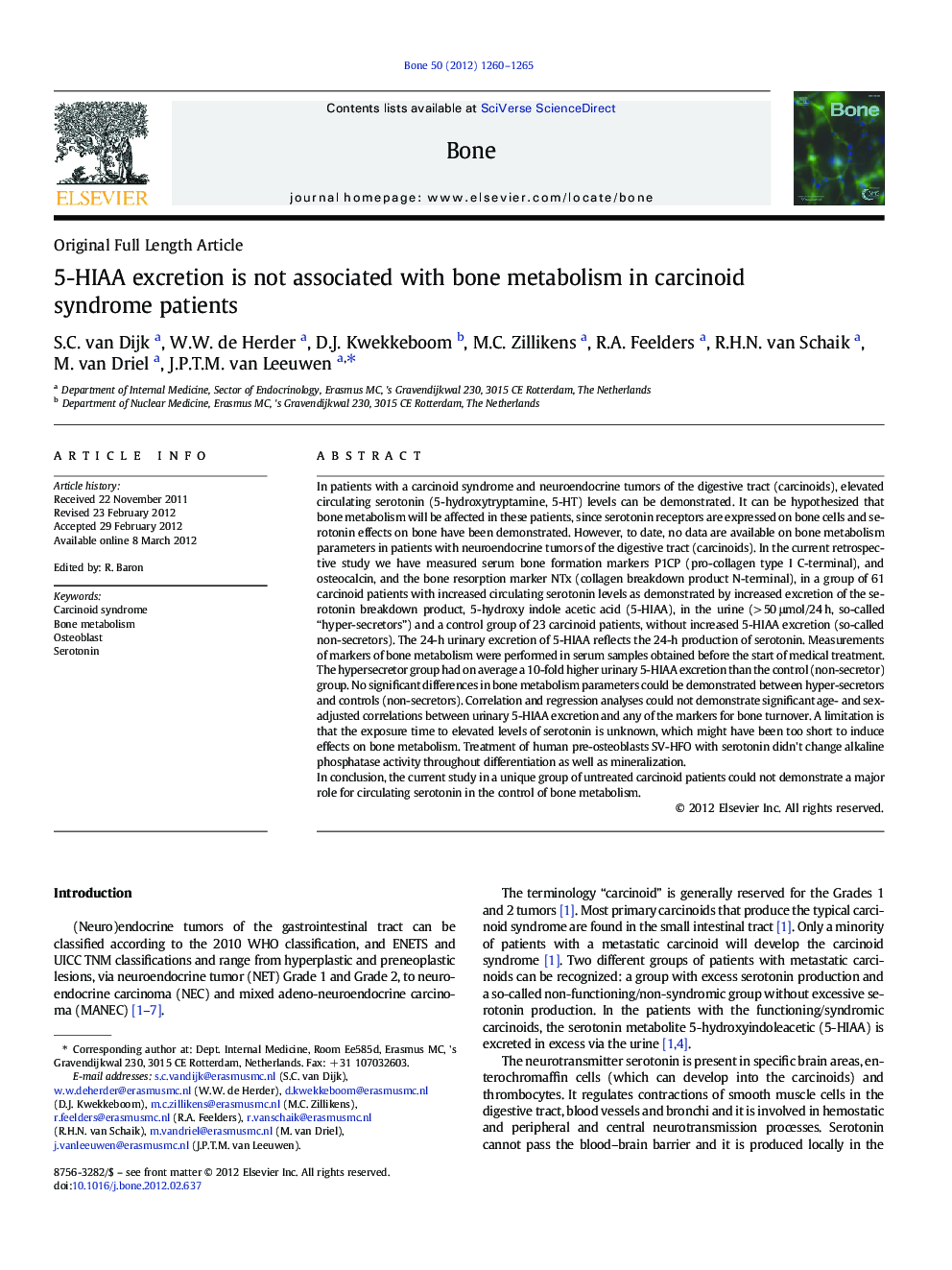| Article ID | Journal | Published Year | Pages | File Type |
|---|---|---|---|---|
| 5891269 | Bone | 2012 | 6 Pages |
In patients with a carcinoid syndrome and neuroendocrine tumors of the digestive tract (carcinoids), elevated circulating serotonin (5-hydroxytryptamine, 5-HT) levels can be demonstrated. It can be hypothesized that bone metabolism will be affected in these patients, since serotonin receptors are expressed on bone cells and serotonin effects on bone have been demonstrated. However, to date, no data are available on bone metabolism parameters in patients with neuroendocrine tumors of the digestive tract (carcinoids). In the current retrospective study we have measured serum bone formation markers P1CP (pro-collagen type I C-terminal), and osteocalcin, and the bone resorption marker NTx (collagen breakdown product N-terminal), in a group of 61 carcinoid patients with increased circulating serotonin levels as demonstrated by increased excretion of the serotonin breakdown product, 5-hydroxy indole acetic acid (5-HIAA), in the urine (> 50 μmol/24 h, so-called “hyper-secretors”) and a control group of 23 carcinoid patients, without increased 5-HIAA excretion (so-called non-secretors). The 24-h urinary excretion of 5-HIAA reflects the 24-h production of serotonin. Measurements of markers of bone metabolism were performed in serum samples obtained before the start of medical treatment. The hypersecretor group had on average a 10-fold higher urinary 5-HIAA excretion than the control (non-secretor) group. No significant differences in bone metabolism parameters could be demonstrated between hyper-secretors and controls (non-secretors). Correlation and regression analyses could not demonstrate significant age- and sex-adjusted correlations between urinary 5-HIAA excretion and any of the markers for bone turnover. A limitation is that the exposure time to elevated levels of serotonin is unknown, which might have been too short to induce effects on bone metabolism. Treatment of human pre-osteoblasts SV-HFO with serotonin didn't change alkaline phosphatase activity throughout differentiation as well as mineralization.In conclusion, the current study in a unique group of untreated carcinoid patients could not demonstrate a major role for circulating serotonin in the control of bone metabolism.
⺠Unaltered bone turnover markers in carcinoid patients with serotonin hypersecretion. ⺠No effect of serotonin on differentiation and mineralization of human osteoblasts. ⺠Question the clinical relevance of serotonin in the control of human bone turnover.
